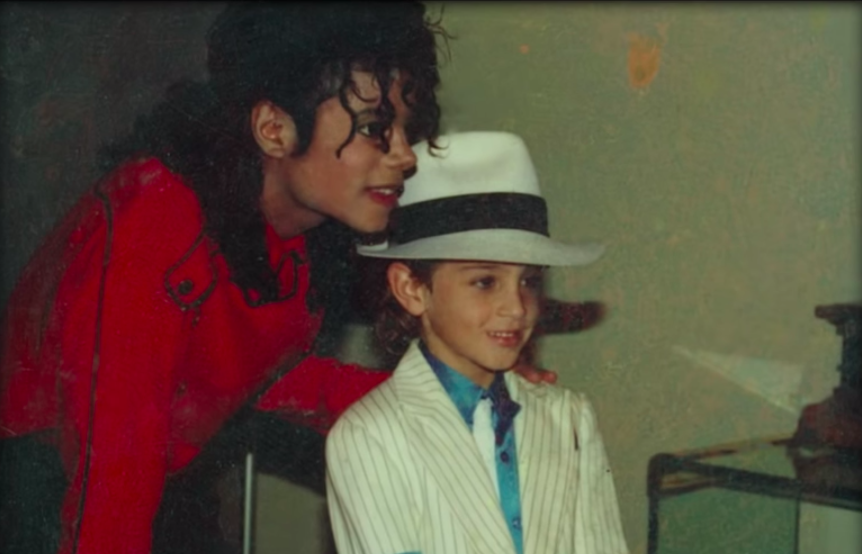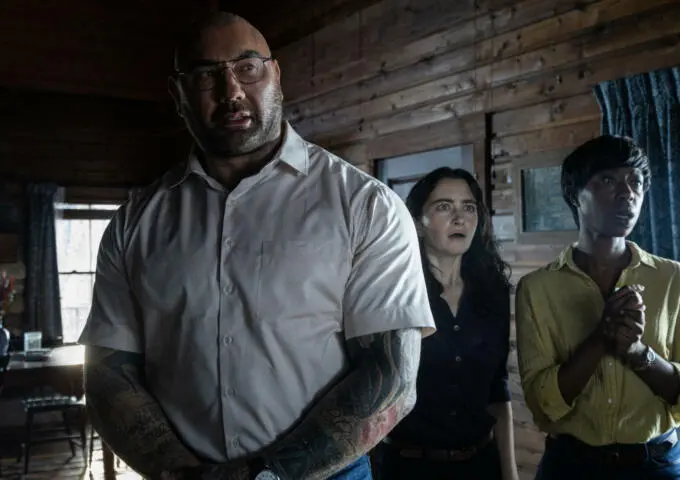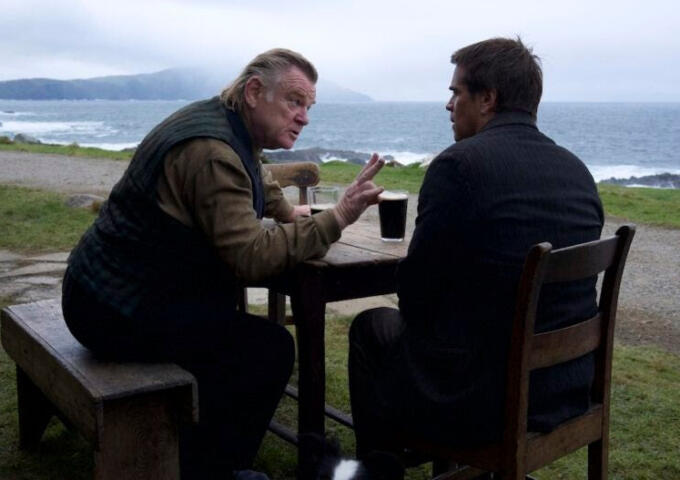It was two nights of must-watch TV, depending on who you asked.
This week, HBO dropped another monster of a think piece with Leaving Neverland, a four-hour documentary about two men who say Michael Jackson sexually abused them, over many years when they were young boys.
It’s a documentary in the same artery as the January Lifetime airing of Surviving R. Kelly. But while the Kelly doc had many more accusers and a much larger mountain of evidence, the two men in Leaving Neverland are compelling – and credible.
The two accusers, Wade Robson and James Safechuck, had both vouched for Jackson in the past, even supporting him during past trials, but reversed themselves later in life. But that’s not exactly a rare thing in sexual abuse cases, as anyone who remembers the Jerry Sandusky case can attest.
Over the course of the film, Leaving Neverland strongly makes the case that Jackson really was a sexual abuser. Even by the most charitable interpretation, he regularly traveled with and slept in bed with young boys – and that’s something that’s been alleged for decades.
Make no mistake: Leaving Neverland is a very difficult watch, and I wouldn’t blame anyone for a second if they’re not up to watching it.
__
“This tendency has also been an unfortunate side effect of the rise of the #MeToo movement. For way, way too many people, ‘I’m a fan of that person and I love their work’ is not only defense but an exoneration, for the worst of horrible acts. This isn’t only in the case of Jackson; R. Kelly, after he was arrested last month, had female fans offering to post his bail.”
__
There’s only very limited use of Jackson’s music; the Kelly documentary used all sorts of Kelly’s songs, essentially daring the singer to sue the filmmakers. The other difference? While Kelly has enjoyed a long career as a top pop star, Jackson was something else altogether. He was, arguably, the biggest star in the entire world for a considerably long period of time.
The reaction to the Jackson doc also showed something else: That Michael Jackson’s fans are rapidly ascending the ranks of the most loathsome, morally obtuse fanbases in existence. When it comes to obsession and obnoxious online behavior, Jackson fans are now in rarefied territory I’ve only ever seen before from partisans of the DC Extended Universe, Penn State scandal truthers, and (of course) the current President of the United States.
Somehow, some way, the extended little-boy tantrum over Marvel making a movie that stars a woman wasn’t even the most horrifying toxic fandom story during the month of March.
A New York Times look at obsessed MJ fans who have dedicated their lives and their hours-long YouTube videos to defending the honor of a long-dead pop star, the director of Leaving Neverland, Dan Reed, was unusually forward:
“One can only compare them to religious fanatics, really,” Reed told the Times. “They’re the Islamic State of fandom.”
What’s notable about these fans is that don’t have inside information or any greater understanding of the facts of any of the cases. They just seem to have the thought process of ‘I love Michael Jackson, no one I love would ever do anything like this, and therefore he couldn’t possibly have done this.’ It’s both circular reasoning, and a totally morally untenable position.
This tendency has also been an unfortunate side effect of the rise of the #MeToo movement. For way, way too many people, ‘I’m a fan of that person and I love their work’ is not only defense but an exoneration, for the worst of horrible acts. This isn’t only in the case of Jackson; R. Kelly, after he was arrested last month, had female fans offering to post his bail.
This happens with politicians too – there are very few supporters of Trump who believe any of his double-digit accusers because anyone who would accuse the president they love must be a lying whore. And yes, that was the position of a whole lot of Democrats – see Bill Clinton and Al Franken as example.
The reaction to the Jackson documentary ties this to another unfortunate tendency: When Michael Jackson died in June 2009, the culture just kind of collectively decided to pretend that the last two decades of his life hadn’t ever happened. This included the weirdness, the baby-dangling, the grotesque plastic surgery, the subpar later music, and yes, the molestation allegations. It was as if Jackson had been hit by a bus a year or two after Bad was released, and just kind of stayed in suspended animation until his death.
Jackson’s estate even reacted to the documentary by putting two relatively rare vintage concerts by the singer upon his official YouTube channel to run concurrently with the two-part HBO documentary, as if inviting Jackson’s fans to put their head in the sand and enjoy his music instead.
I’ve loved Michael Jackson’s music for my entire life, just as I’ve loved Woody Allen’s films and Louis C.K.’s comedy. Hell, Harvey Weinstein even produced a whole bunch of movies that are foundational for me.
Will I stop listening to Jackson’s music? I’m not sure. We can debate the “separate the art from the artist” question all day long and probably never come up with a definitive answer about what is the right and ethical thing. But I can certainly say that one’s status as a powerful and beloved pop star is in no way an argument, all by itself, for their innocence.
TWITTER: @STEPHENSILVER




